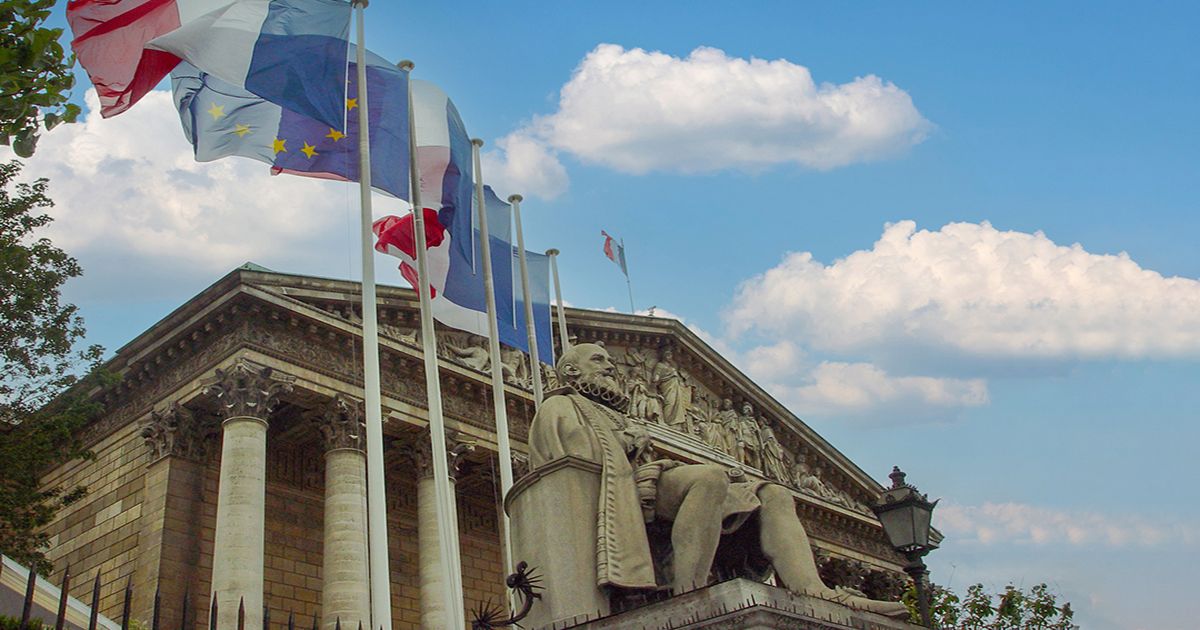Lagging behind in third, fourth and fifth place, the French left, including the communists, managed to form a coalition in just six days, leaving the centrist Renaissance party, led by President Emmanuel Macron, in second place and the so-called National Rally, led by the controversial Marine Le Pen, in third place.
However, none of them obtained the minimum 289 seats, out of the 577 that the French Congress has, to lead the legislature, which places the European country, which is accustomed to governing with clear majorities, in an unprecedented situation that is very difficult to manage.
In this way, “I suspect that Macron, who is very agile as a politician, will try to break up the left-wing coalition and join the parliamentarians of the Socialist Party, to which he belonged,” declared to DIARIO LAS AMÉRICAS the emeritus professor of Law at the University of Lleida, in Catalonia, Spain, Ferran Espaser.
Another possibility, albeit Machiavellian, would be “that Macron fails to break the coalition and hands the left a poisoned candy by appointing a prime minister who cannot do his job in the face of such disparity in Congress and is left in a bad light with voters in another election,” he added.
How does it work
France has a democratic system that elects a president, but, like other countries, the cabinet has to be validated, in some way, by Congress.
Therefore, “if the French president’s party does not have an absolute majority in the legislative power, it can appoint as many ministers as it wants, and it must accept what the majority of deputies tell it to do,” the academic clarified.
In this context, the centrist bloc made it clear that it will not accept a coalition that includes the radical left of the France Insoumise party, a party that insists that its socio-economic programme must be applied without changes.
The programme, described by Macron as “extremist” and “dangerous”, calls for raising the minimum wage to 1,600 euros net (it is worth remembering that health care and other matters are covered by the national budget), as well as reimposing high taxes on the richest or repealing the pension reform that the government had to impose by decree after months of street protests.
On the other hand, the so-called right, led by Le Pen and whose banner was a strong rejection of immigration, maintains as a key proposal to favour the French over foreigners in the distribution of jobs, housing and social services.
It is worth remembering that Le Pen’s party was the winner in France in the recent European legislative elections. It even received ‘support’ from Russia, from Vladimir Putin himself, but it rejected it.
Confident of winning the French parliamentary elections, Le Pen, who sought to lead the country for the third time and accepted defeat again, said that “victory has been postponed,” meaning she will continue to fight.
Europa
If the United States is important, and so is China, Europe is the intermediate bastion. As it has always been, since ancient times, the Old Continent is a land of ideas and divergences, and therefore it is a platform for vanguards with their virtues and defects, with the majority of countries governed by political coalitions.
“There are those who believe that the United States is in crisis, that it is sinking, and that China could be the new leader. But I don’t think so. The United States has much more to offer than the Chinese,” he said.
Europe, which was the scene of two world wars and is the playground of the confrontation between Vladimir Putin’s Russia and its invasion of Ukraine, feels the weight of any political movement that tips the balance.
Even within the European Union, Hungary, which has been a member of the organisation of European countries since 2004, seems to be moving away from certain European norms by enacting conservative laws and winking at Russia under the supposed banner of “international détente”, when its Prime Minister, Viktor Orbán, visited Moscow to, allegedly, “extend an olive branch and promote the end of the attack on Ukraine”, said Professor Espaser.
In Spain, the country closest to Latin America, the political situation is on fire every day.
“In Spain, they don’t know what else to do to be able to govern because there is no political party that can achieve a majority,” he said.
“That is why Pedro Sánchez, who was opposed to the amnesty for Catalans who violated the Constitution by declaring independence in 2017, had no choice but to change his tune and offer forgiveness in order to form a coalition,” he stressed.
“And the Popular Party, which theoretically rejects Vox due to its extreme inclinations, has no choice but to accept them halfway to form a government in regions and municipalities,” he added.
In the United Kingdom there were also legislative elections, which define who is in charge of government matters.
“The United Kingdom is no longer a member of the European Union,” the academic recalled, “after the national referendum calling for its exit in 2020. But it remains important to the European Union for its economic and political contributions,” he stressed.
A few days ago, the British people, made up of England, Wales, Scotland and Northern Ireland, chose to give an absolute majority to the Labour Party after 17 years of conservative government, which is equivalent to the center-left or Democratic Party in the United States.
Germany, the European power that heads the European Union, also governs in coalition.
“Whether you like it or not, this is the new norm. It is democracy. And it will probably spread to the rest of the world, including the United States, when the traditional political parties have no more to give and other groups emerge,” he predicted.

